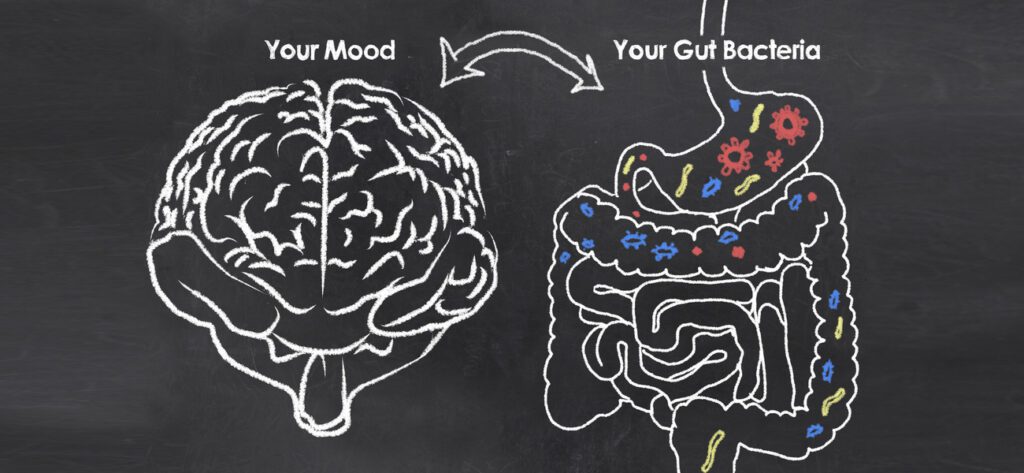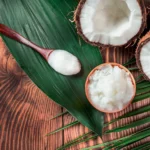How Beneficial Bacteria Can Help More Than Just Your Gut
Like an ecosystem, with many organisms that work together to create an environment, the human body is similar. Organisms in an ecosystem are comparable to organs in the body. One, in particular, the human gut, has a collection of microorganisms known as gut microbiota. An ecosystem contains different living things, each with a certain job that is comparable to gut microbiota that houses bacteria, good and bad, inside the human gastrointestinal tract (GIT).
The gut microbiota is home to trillions of bacteria cells, which is more than the amount of human DNA giving the gut the name, second brain (Butler, et al., 2019). Despite their tiny size, these powerful little guys in the gut are responsible for digesting food, keeping the immune system and mood in check. Their role in digestion also gives probiotics the ability to help with weight loss.
Probiotics Start Work Early
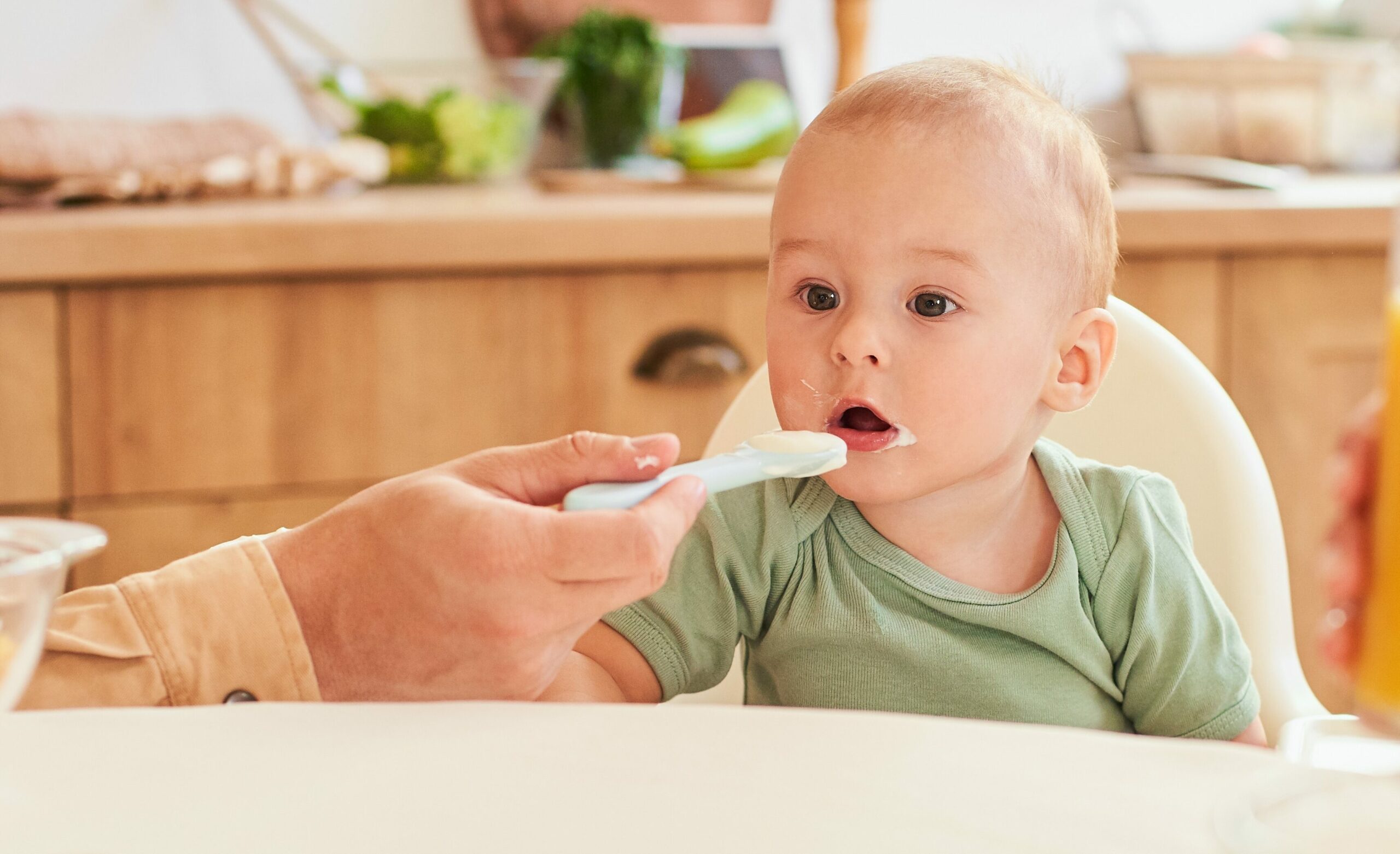

When we are born, the microbiome changes and adjusts from how we are fed and the medications we take. At one year old, the microbiome is as developed as an adult is. As humans grow, their microbiome is dependent on what we put into our body such as our diet (Butler, et al., 2019). Just as the brain is responsible for the central nervous system, the gut microbiota has proven to be an influencer on hormones, nerves that transmit signals throughout the body, and protect against disease, which is why many consider probiotics for better mental health (Butler, et al., 2019).
From the Canadian Journal of Psychiatry, Mary Butler (et al.) researched the benefits of probiotics and the effects they have on people with psychiatric disorders such as depression, bipolar disorder, anxiety, and autism spectrum disorder (Butler, et al., 2019). Butler found that the patients that added healthy bacteria into their diet had positive results.
The Good And The Bad
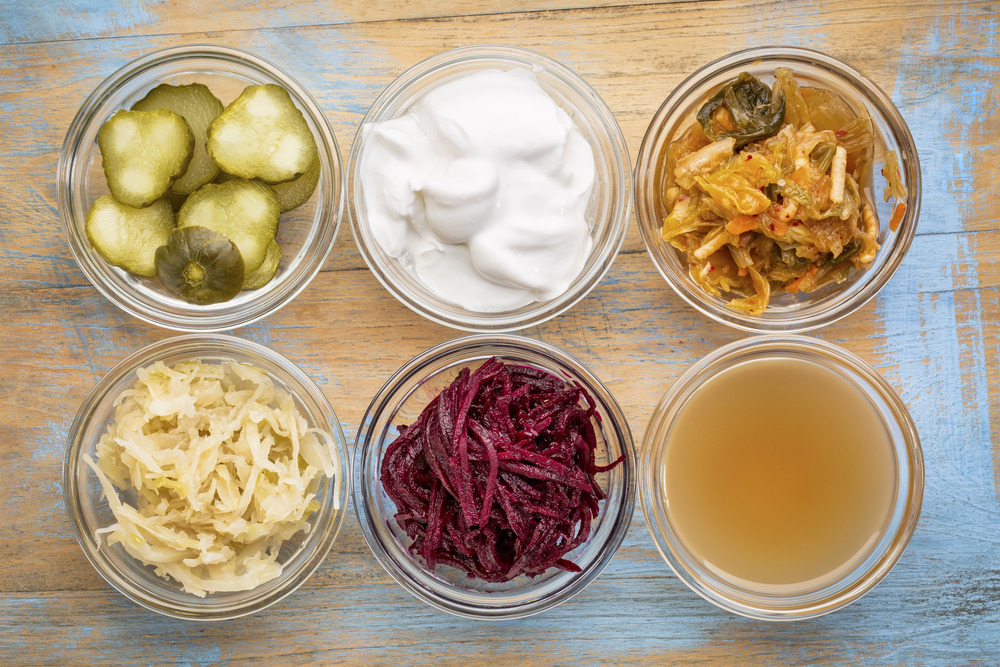

Humans need food as fuel to survive, as do bacteria. When the gut is filled with bad bacteria, it impacts mental health. How does one inject themselves with good bacteria? More bacteria. Helpful living bacteria that can either be eaten (sauerkraut, kefir, kombucha, kimchi) or taken as a supplement are known as probiotics. Again, bacteria feed off of other bacteria, probiotics do the same, and these are known as prebiotics.
Prebiotics are like nutrients for probiotics, and these can be found in foods like fruits, vegetables, and nuts (Sivamaruthi, et al., 2019). When there is an abundant number of bad bacteria in the gut microbiome, they can be responsible for having many negative effects on the human body (Sivamaruthi, et al., 2019), which gives the reason that these bad bacteria are impactful to mental health and the immune system.
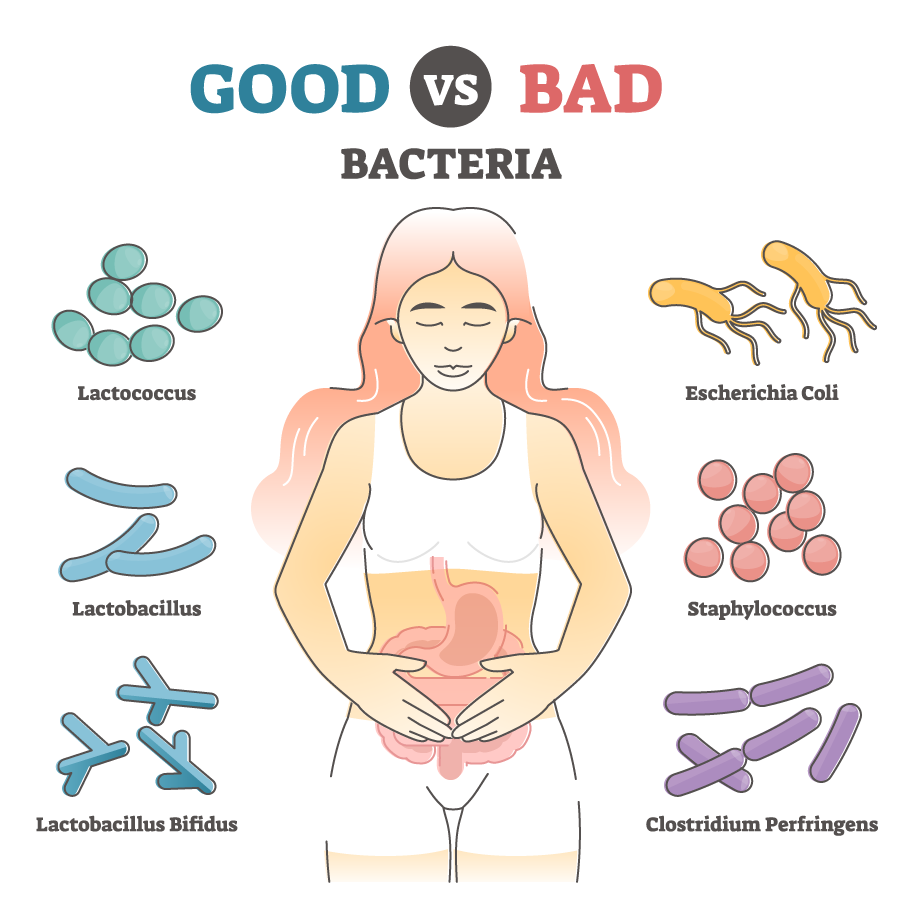

Think about a straight line connecting the brain to the kidneys. This is known as the hypothalamic-pituitary-adrenal (HPA) axis (Butler, el al., 2019). The HPA axis has the job of mediating stress within the body and communicates with the gut microbiome. Because the HPA axis works with the gut, probiotics and prebiotics can be helpful with toning down stress in the body. If stress is not taken care of, it can later develop into anxiety. This is why many people choose to take supplements with probiotics for better mental health.
What is Serotonin?
Serotonin, a nerve in the body, is responsible for what makes us happy. This nerve has a major impact on anxiety and depression; in fact, 95% of serotonin is made in the gut (Sivarmaruthi, et al., 2019). People who struggle with depression or anxiety disorder are typically on a medication known as an antipsychotic or an antidepressant. Antipsychotics can cause an imbalance in the gut and can cause a change in the microbiome’s composition (Butler, et al., 2019).
Serious medications such as antidepressants used for depression and anxiety disorders can have short term effects such as weight gain, suicidal thoughts, insomnia, or sexual problems. Long term side effects can be deathly if too much serotonin is made in the body, which is called serotonin syndrome (Townsend, 2020). Alarming, right?
Probiotics For Better Mental Health – What You Can Do
Research dealing with the gut microbiome is becoming a hot topic, but it is hard to experiment with considering there are over a trillion floating around in the gut. It is relieving to find that Butler (et al.) discovered patients with mental health disorders improved with the use of probiotics and a diet change. Due to the multiple strains of probiotics and it being hard to match which will infect the bad bacteria, the two most helpful strains to take are Lactobacillus and Bifidobacterium.
There is an abundance of probiotics to choose from in stores, so it is important to read the labels making sure to see the different groups of bacteria and strains, predominantly looking for products with several different strains as well as the number of live bacteria (Bulter, et al., 2019). A good place to start is a trustworthy expert review site, such as NaturalReview’s Top 5 Probitoic Supplements. Using probiotics for better mental health may not cure you in one day, but it could beat the odds of living with the side effects of heavy medication. As always, talk to your doctor before taking any supplement or making changes to your medication!
Butler, M. I., Mörkl, S., Sandhu, K. V., Cryan, J. F., & Dinan, T. G. (2019). The Gut Microbiome and Mental Health: What Should We Tell Our Patients?: Le microbiote Intestinal et la Santé Mentale?: que Devrions-Nous dire à nos Patients? Canadian Journal of Psychiatry, 64(11), 747–760. https://doi-org.nuncio.cofc.edu/10.1177/0706743719874168
Sivamaruthi, B. S., Prasanth, M. I., Kesika, P., & Chaiyasut, C. (2019). Probiotics in human mental health and diseases-A mini-review. Tropical Journal of Pharmaceutical Research, 18(5), 889–895. https://doi-org.nuncio.cofc.edu/10.4314/tjpr.v18i4.29 Townsend, M. C., & Morgan, K. I. (2020).
Essentials of psychiatric mental health nursing: concepts of care in evidence-based practice. Philadelphia: F.A. Davis Company.


